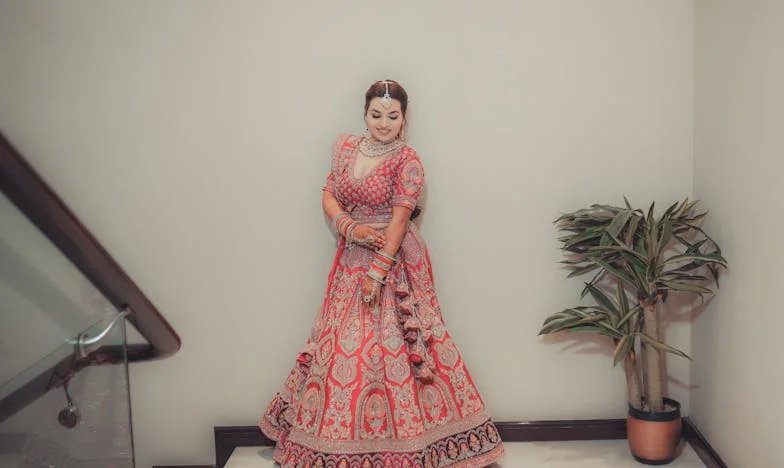A Wedding for Two, One Heartbeat Apart: Honoring Leah’s Last Wish
“You can’t do this, Matt. Please—think about what you’re doing!” My sister’s voice echoed off the stained-glass windows, bouncing around the empty church like the last notes of a hymn. I stood at the altar, my hands trembling, clutching a bouquet Leah had chosen months ago. The scent of lilies and gardenias—her favorites—hung heavy in the air, too sweet, almost suffocating.
In my pocket, her engagement ring pressed against my thigh, a cold reminder of the future we’d planned and the cruel turn that fate had taken. Three days before our wedding, Leah’s car spun out on black ice, and in a blink, the world we’d built fell apart. I’d imagined this aisle filled with loved ones, Leah’s laughter floating above the music, not the thick silence broken only by my own ragged breathing.
I turned to my sister, Emily, searching her face for understanding, for any sign that I wasn’t completely out of my mind. “Leah planned every detail, Em. The seating, the music, even the way the cake would look. She wanted this so badly. I have to give it to her.”
Emily’s eyes shone with tears. “No one’s saying you don’t love her. But a wedding at her memorial? Matt, it’s not healthy. Mom and Dad are worried. Leah’s parents—God, I can’t even imagine…”
I looked away, jaw clenched. Leah’s parents had stopped answering my calls. I didn’t blame them. Their only daughter was gone, and I was the man who was supposed to keep her safe. But I needed this. I needed to stand where we were meant to say our vows, to look out over the empty pews and pretend she was making her way down the aisle, her blue eyes shining with excitement and nerves.
I remembered the way she’d traced the tattoo on my forearm—the words “For all of my days”—the night she said yes. She’d whispered, “I want our wedding to be a promise, not just a party.”
So, here I was, standing beneath the archway she’d picked out, the one her dad built with his own hands. The ache in my chest was so deep I thought it might swallow me whole.
The doors creaked open. My mom slipped inside and took a seat in the back. She didn’t say a word, but I saw the pain etched in her face. She’d lost her own mother the year before, and I wondered if she saw something of herself in me now.
I turned to the empty aisle and imagined Leah walking toward me. Her dress, hanging in our bedroom, would never be worn. The thought made me dizzy. I closed my eyes, hearing her voice in my head: “Promise me you’ll live, even if I’m not there. Promise me you’ll love me anyway.”
I made it through the vows, barely. My voice cracked as I slid her ring onto my own finger, tears streaking down my face. I read the letter she’d written me, the one I found in her desk drawer the night after the accident:
“If you’re reading this, something went wrong. Don’t let grief turn you to stone. Remember how much we laughed, how much we dreamed. Have our wedding. Dance with me in spirit. Don’t let me go—just let me go forward with you.”
After the ceremony, I drove to the cemetery, bouquet in hand. The sun sank behind the hills as I knelt by her headstone, tracing the letters of her name. I laid the flowers down, the petals trembling in the evening breeze. “You got your wedding, Leah. I hope you know how much you’re loved.”
The weeks that followed were a blur of casseroles, sympathy cards, and unanswered texts. Leah’s parents finally called. Her mom’s voice was brittle, but there was gratitude there, too. “She would have loved it, Matthew. Thank you for loving her so fiercely.”
But not everyone understood. Some friends drifted away, unsure what to say. My dad called it “morbid.” My boss offered extra time off, then quietly suggested counseling. I started seeing a therapist, mostly to stop my family from worrying. Every session, I repeated the same thing: “I just want to do right by her.”
Grief is a strange companion. It sits beside you at the dinner table, crawls into bed with you at night. I kept Leah’s favorite mug on the counter, her playlists in my car. I tried dating again, once, but left after ten minutes—the guilt was too heavy. I wondered if I’d ever move forward, or if I’d always be chasing Leah’s shadow.
One afternoon, I found a folder on Leah’s laptop labeled “Someday.” Inside were notes for a charity she wanted to start: wedding dresses for women who couldn’t afford them, a way to share the joy she’d felt. I started volunteering at a local shelter, sewing with trembling hands, telling her story to anyone who’d listen. Slowly, the ache in my chest shifted. It was still there, but it didn’t crush me anymore.
Now, a year later, I visit Leah’s grave every month. I tell her about the brides we’ve helped, about Emily’s new baby, about the way the world keeps spinning, even when your heart begs it to stop. Sometimes, I still dream of our wedding day—the way it should have been, the way it was, the way it lives on in memory.
I don’t know if I’ll ever stop loving Leah, or if I’ll ever marry again. But I do know this: Love isn’t about the perfect day, or the perfect ending. It’s about showing up, even when your heart is broken, and carrying someone’s dreams forward when they can’t do it themselves.
Do you think it’s possible to move on without leaving someone behind? Or do we just learn to carry their love with us, wherever we go?
